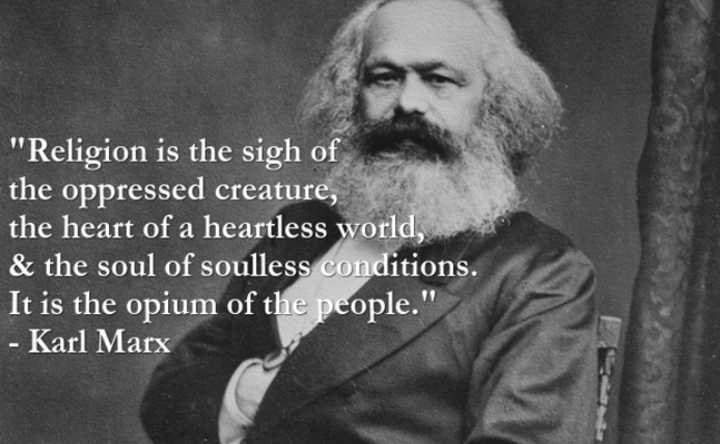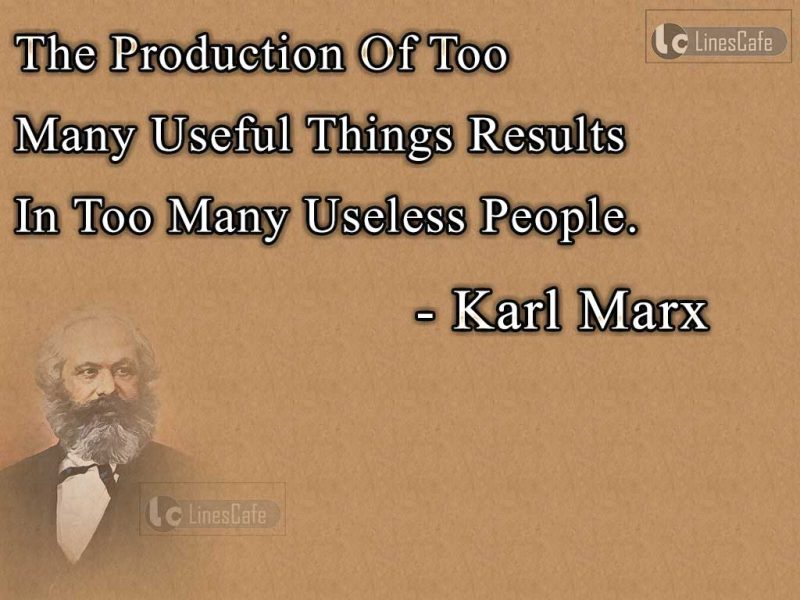

While Marx's theories have been discredited, they are fascinating and worth knowing. In a very real sense, they are sharing in the profits.

If workers' incomes are rising, they are clearly sharing in the growth of the economy. Second, workers' incomes have actually risen over time, which undercuts the theory that labor is exploited in the name of profit. First, in socialist, centrally planned economies have proven far less efficient at producing and delivering goods and services-that is, at creating the greatest good for the greatest number of people-than capitalist systems. In practice, however, two events have undermined Marx's theories. Clearly, Marx's thinking had a tremendous impact on many societies, particularly on the USSR (Union of Soviet Socialist Republics) in the twentieth century. Marx predicted the fall of capitalism and movement of society toward communism, in which “the people” (that is, the workers) own the means of production and thus have no need to exploit labor for profit. Ultimately, in Marx's view, society moves to a two-class system of a few wealthy capitalists and a mass of underpaid, underprivileged workers. The struggle intensifies as businesses eventually become larger and larger, due to the inherent efficiency of large outfits and their ability to withstand the cyclical crises that plague the system. To Marx, class struggle is not only inherent in the system-because of the tension between capitalists and workers-but also intensifies over time. This situation of management exploiting labor underlies the class struggle that Marx saw at the heart of capitalism, and he predicted that that struggle would ultimately destroy capitalism. For this reason, Marx couldn't abide the notion of a profit-oriented organization.

In Marx's view, presented in his 1867 tome Das Kapital ( Capital), a capitalist's profits come from exploiting labor-that is, from underpaying workers for the value that they are actually creating. Marx believed that once the capitalist (the guy with the money and the organizational skills to build a factory) has set up the means of production, all value is created by the labor involved in producing whatever is being produced. Where Adam Smith saw harmony and growth, Marx saw instability, struggle, and decline. Karl Marx, a German economist and political scientist who lived from 1818 to 1883, looked at capitalism from a more pessimistic and revolutionary viewpoint. His work gave generations of economists plenty to think about and expand upon. Smith also delved into the dynamics of the labor market, wealth accumulation, and productivity growth. The key doctrine of classical economics is that a laissez-faire attitude by government toward the marketplace will allow the “invisible hand” to guide everyone in their economic endeavors, create the greatest good for the greatest number of people, and generate economic growth. In making this discovery, Smith founded what is known as classical economics.
#Carl marx general thoughts free#
In other words, it's the free market economy in action. And all of this happens without their consulting one another or without all the king's men telling them how much to produce. Each buys the amount of meat, bread, and candlesticks that his household needs. Each produces the amount of meat, bread, and candlesticks he judges to be correct. Essentially, the butcher, the baker, and the candlestick maker individually go about their business. While Smith couldn't prove the existence of this “hand” (it was, after all, invisible) he presented many instances of its working in society. He called the mechanism by which this self-regulation occurs “the invisible hand,” in his groundbreaking book, The Wealth of Nations, published in 1776, the year of America's Declaration of Independence. Deep examination of the world of business affairs led Smith to the conclusion that collectively the individuals in society, each acting in his or her own self-interest, manage to produce and purchase the goods and services that they as a society require. In Smith's time, philosophy was an all-encompassing study of human society in addition to an inquiry into the nature and meaning of existence. Adam Smith and His Invisible Hand of CapitalismĪdam Smith, a Scot and a philosopher who lived from 1723 to 1790, is considered the founder of modern economics. Each was a highly original thinker who developed economic theories that were put into practice and affected the world's economies for generations. The three most important economists were Adam Smith, Karl Marx, and John Maynard Keynes (pronounced canes). Getting Organized: Command, Market, and Mixed Economies.


 0 kommentar(er)
0 kommentar(er)
